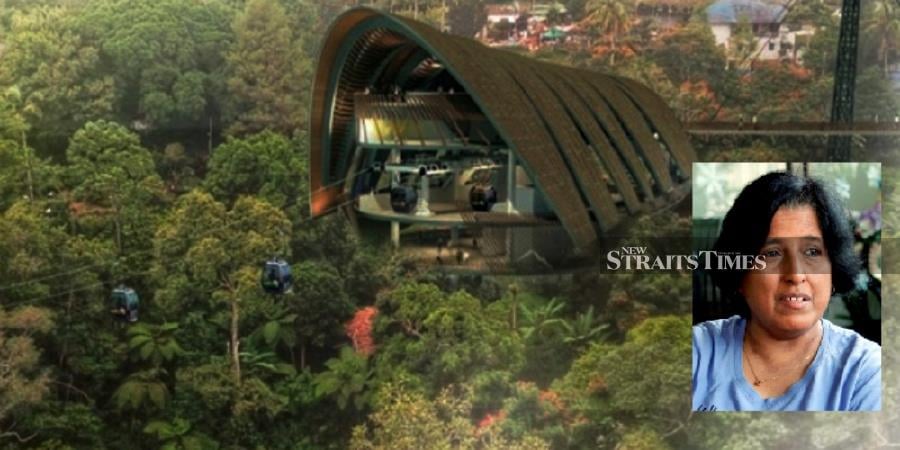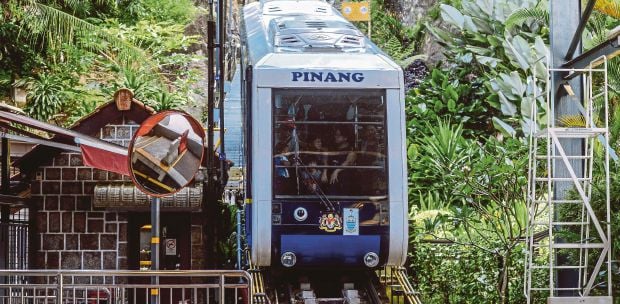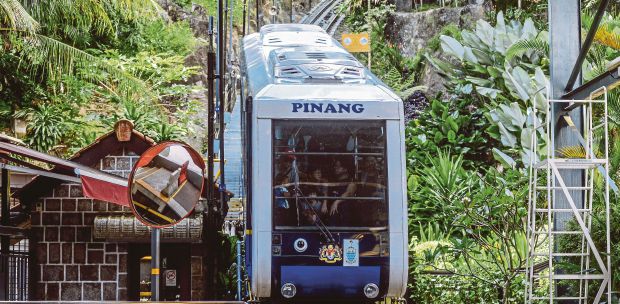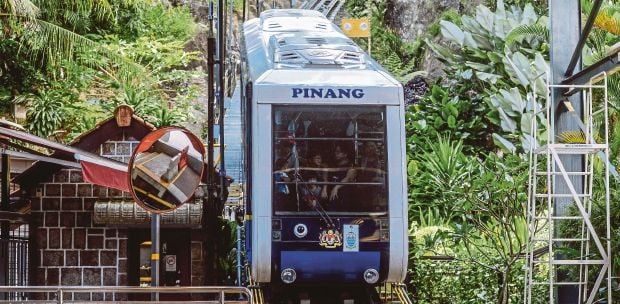GEORGE TOWN: It is wrong for the director-general (DG) of the Department of Environment (DOE) to approve the Environmental Impact Assessment (EIA) report for the Penang Hill Cable Car project without public display and public feedback, Sahabat Alam Malaysia (SAM) said.
SAM president Meenakshi Raman said this was because under the Environmental Quality (Prescribed Activities) (Environmental Impact Assessment) Order 2015, all activities that relate to 'transportation' are listed as a 2nd Schedule activity, which under the order, required public display and public comment.
In the 2nd Schedule of the EIA Order, 'transportation' is listed as a prescribed activity and includes the "construction of new routes or branch line for a mass rapid transport project."
"Our view is that the cable car project is indeed a 'mass rapid transport project', as it involves the transportation of 1,000 passengers per hour to the top of the hill as announced by Penang Hill Corporation (PHC) general manager Datuk Cheok Lay Leng recently.
"The cable car line may only be 2.7km, but the entire system is being constructed on very environmentally-sensitive areas involving both Penang Hill, which is a biosphere reserve, and the Penang Botanical Gardens.
"Moreover, the cable car project also involves slopes which are steep and beyond 35-degree gradient in parts, which requires the EIA to be under the 2nd Schedule of the EIA Order, thus requiring public display and comments.
"Hence, both from legal, environmental and social impact standpoints, it would have been proper and prudent for the EIA to be made public for comments and feedback," she said today.
Elaborating, Meenakshi said SAM was told that only 50 trees would be moved for the RM245 million cable car project and the project was environmentally friendly.
She said that might be the view of the authorities, but it was for the public to make an independent assessment of these assurances.
"Our point is that the law must be obeyed, and public display and comment is mandatory, prior to any approval under the law on EIAs, for such a mass rapid transport which is on very steep slopes in an environmentally sensitive area.
"Moreover, even in obtaining planning approvals under the Town and Country Planning Act 1976, a Social Impact Assessment (SIA) has to be done, including Traffic Impact Assessments (TIA).
"None of these have been made public," she added.
Penang Hill and the Botanic Gardens, according to Meenakshi, are areas of much public interest.
She said apart from the legalities, it was indeed good governance and practice to publicly display the EIA, SIA and TIA for public feedback and comments.
"Granting approvals without transparency undermines public confidence.
"We call on the DOE and the Penang government to make public these documents and not commence further works until the public is given a chance to provide their feedback on the cable car project," she stressed.
It was report that the cable car system for Penang Hill would be provided by global market leader Doppelmayr.
The Doppelmayr Group has built more than 86 cable car installations in Unesco Heritage, Geopark and Biosphere sites as well as the national parks of various countries around the world.
In December 2022, Chief Minister Chow Kon Yeow had announced that Hartasuma, a homegrown pioneer in the local rail industry, had successfully won the bid for the cable car project.
Hartasuma was chosen from among six companies that submitted the Request for Proposal (RFP) for the project.
The company's estimated investment is expected to be RM245 million and the project is based on a 30-year concession period.
The project is expected to take three years to be completed and fully operational.






